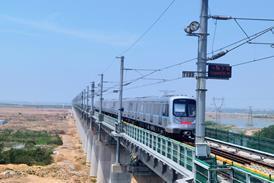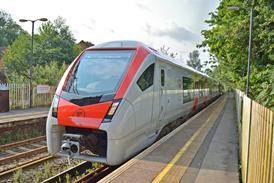LAST MONTH we drew attention to the plight of German Railway, which has become an unwelcome focus for media interest in the wake of the Eschede ICE disaster last year. When DB Chairman Dr Johannes Ludewig announced details of his company’s 1998 performance on March 3, his first remarks addressed the sudden resignation on February 24 of Supervisory Board Chairman Dr Heinz Dürr, who reportedly left in high dudgeon.
Dürr had preceded Ludewig as Chairman of DB’s management board, and his departure was another blow for the beleagured railway. An unlucky series of accidents this year included the derailment in January of an ICE between Hannover and Berlin, a collision on February 18 between an IC and an IR train at Immenstadt near Kempten in Bavaria which killed one passenger, and three tank wagons derailing in Hannover on March 1. On the following day a hotbox on an Italian freight wagon caused it to leave the rails in a tunnel on the Hannover - Würzburg line and then catch fire. Not surprisingly, the media pounced with accusations of cost cutting leading to safety shortfalls. Ludewig sought to scotch the frenzy by pointing out that ’the frequency of railway accidents has been falling for years’ and quoted a parliamentary debate in February in which Transport Minister Franz Müntefering said that in terms of passenger-km, ’rail is nine times safer than road and three times safer than air’.
Ludewig was at pains to emphasise the difficulties that DB faced last year, not least the unexpected collapse in the last quarter of the chemicals and steel markets. DB Cargo looks set to face an even tougher situation this year, with competition from rival operators becoming a serious threat. Chemicals giant BASF is poised to start running its own open access trains both as domestic services and possibly into Belgium; BASF logistics chief Bernd Flickinger cites savings of 25% compared with using DB’s services. Parcels specialist UPS is keen to use rail to avoid worsening road congestion, but not at any price. It has plans for its own Hamburg - Stuttgart - München service, but DB Cargo does not believe this will happen. It is counting on paying lower access charges to DB Netz than UPS - on the grounds that it is a bigger customer.
But DB Cargo is fighting on other fronts too. On March 2 a more unusual competitor was born in the form of Aqua Rail Transit. ART is ’to operate an inland waterway and rail shuttle intermodal service connecting the Rhine delta and terminals along the Rhine up to Basel with regular rail shuttles over the L




















